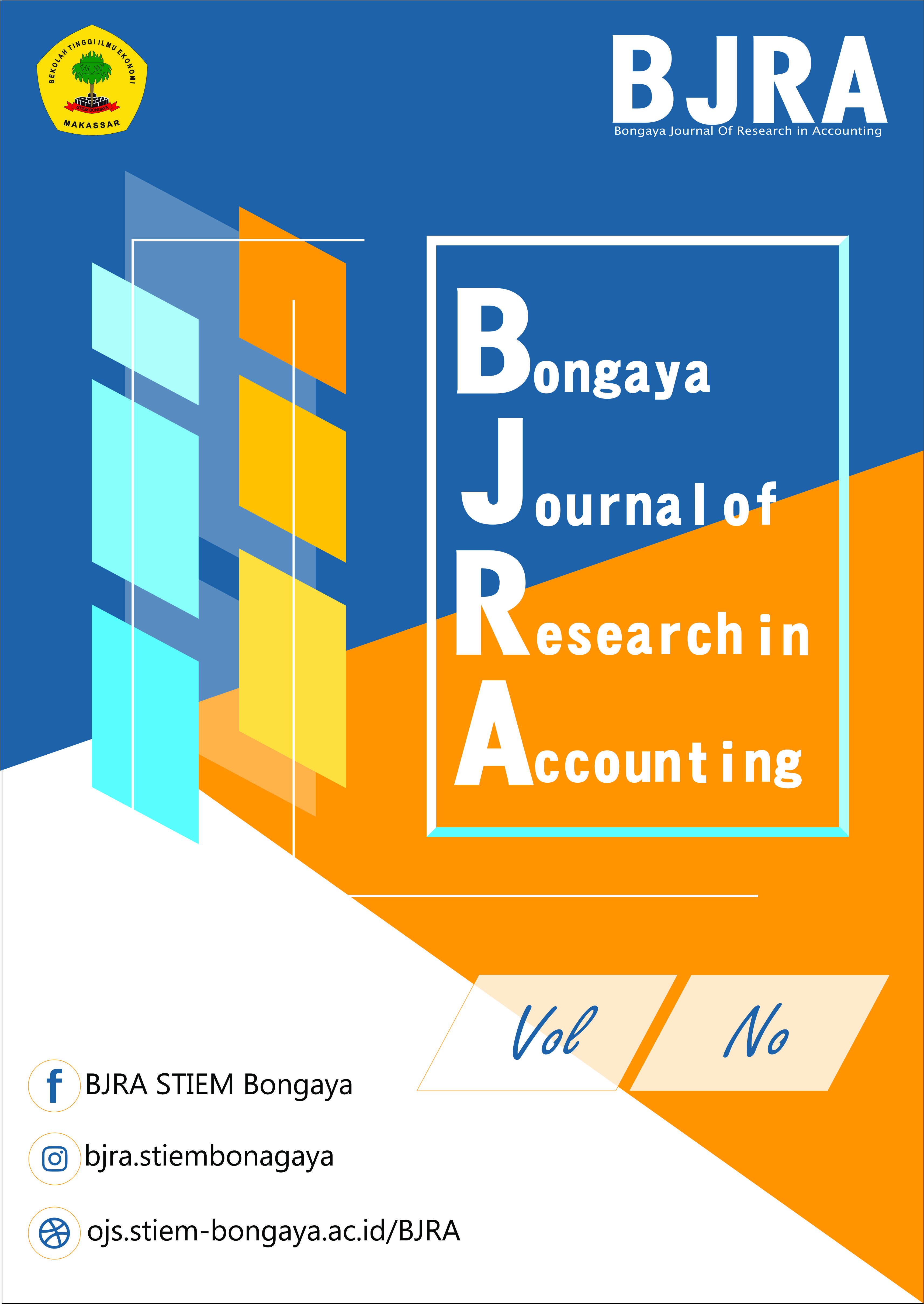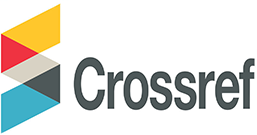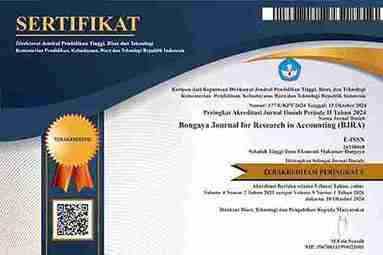Sustainability Reporting analysis of Triple Bottom Line Revelations in the Industrial Revolution 4.0
DOI:
https://doi.org/10.37888/bjra.v4i1.246Keywords:
Triple Bottom Line, Industrial Revolution 4.0, SustainabilityAbstract
Triple bottom line (TBL) and sustainability are two related constructs used interchangeably in the literature. A comprehensive review of the relevant literature has been conducted and has revealed inconsistent use of the term sustainability. Corporate Social Responsibility (CSR) is part of the responsibility and goodwill of the corporation/company and the company's voluntary interactions with their stakeholders. On the other hand, consistency in referring to the three lines simultaneously is built into the TBL structure because the constructs are explicitly based on the integration of social, environmental, and economic lines. However, because the company's concentration is more concentrated on the 4.0 industrial revolution, which is digitizing each process in the company so that the process of corporate social responsibility is hampered. The purpose of this paper is not to support arguments in favor of using one term over another but to provide an overview of the existence of both terms in the literature. With this in mind, researchers in business, management, and sustainability are encouraged to pay special attention to how they use these terms in their studies.
References
Amanda, Ramanthadan Wirakusuma. (2016). Dampak Moderasi Profitabilitas Terhadap Pengaruh Corporate Social Responsibility Pada Nilai Perusahaan Manufaktur. E-jurnal Fakultas Ekonomi dan Bisnis Universitas Udayana.
Clarkson, M. (1995). A Stakeholder Framework for Analyzing and Evaluating Corporate Social Performance. Academy of Management Review. Vol. 20. No.1: page 92-117.Chandra, Agus. 2010. Penelitian Tentang Pemahaman Akuntansi. Di Kutip dari www.aguscandra.com
Dickinson, S. D. M. Beverland & A Lindgreen. (2010). Building Corporate Reputation with Stakeholders. Eoropean Journal of Marketing. 44(11), 856-1874.
Elkington, J. (1997). Cannibals with Forks – Triple Bottom Line of 21st Century Business. Stoney Creek, CT: New Siciety Publisher.
Epstein, M. (2008). Making Sustainability Work: Best Practices in Managing and Measuring Corporate Social, Environmental, and Economic Impacts. San Fransisco: Greenleaf.
Fauzi, H, Svennson, G & Rahman, A, A. (2010). Triple Bottom Line as Sustainabile Corporate Performance: A Proposition for the Future. Sustainability Journal.
Harahap, Sofyan Syafri. (2002). Teori Auntansi. Edisi Revisi Jakarta: PT. Raja Grafindo Persada.
Haque, Shamima & Muhammad Azizul Islam. (2012). Stakeholder Pressures and Climate Change Disclosure: Australian Evidence. Open Confrence Proceeding AFAANZ Melbourne.
Jensen, M.C. and Meckeling W.H. (1994). The Nature of Man. Journall of Applied Corporate Finance. 7, 4-19.
Kotler, P & N Lee. (2005). Corporate Social Responsibility: Doing the Most Good for Your Company and Your Cause. New Jersey: John Wiley and Sons.
Lindawati, Ang Swat Lin dan Marsella Eka Puspita. 2015. Corporate Social Responsibility: Implikasi Stakeholder dan Legitimacy GAP dalam Peningkatan Kinerja Perusahaan. Jurnal Akuntansi Multiparadigma. 6(1), 157-174.
Megawati, Eka. (2018). Peran Corporate Social Responsibility (CSR) dalam Revolusi Industri 4.0. Jurnal Ilmiah Bisnis, Pasar Modal, dan UMKM. 1(2), 79-84.
MinHwa, Lee, JinHyo J. Yun, A. Pyka, DongKyu Won, F. Kodama, Giovanni Schiuma, HangSik Park, Jeonghwan Jeon, KyungBae Park, KwangHo Jung, Min- Ren Yan, SamYoul Lee and Xiaofei Zhao. (2018). How to Respond to the Fourth Industrial Revolutionm or the Second Information echnologi Revolution? Dynamic New Combinations between Technology, Market, and Society through Open Innovation. Journal of Open Innovation: Technology, Market, and Complexicity. 4(21), 1-24.
Munawaroh, Aisyatul. (2014). Pengaruh Profitabilitas Terhadap Nilai Perusahaan Dengan Corporate Social Responsibility Sebagai Variabel Moderating. Jurnal Ilmu & Riset Akuntansi. 3(4).
Murdifin, I., Pelu, M. F. A., Perdana, A. A. H., Putra, K., Arumbarkah, A. M., Muslim, M., & Rahmah, A. (2019). Environmental disclosure as corporate social responsibility: Evidence from the biggest nickel mining in Indonesia. International journal of Energy Economics and policy, 9(1), 115.
Said, D., & Junaid, A. (2020). Altruistic Value Reflection Company Policy and Strategy: Finding Local Wisdom and the Meaning of CSR. ATESTASI: Jurnal Ilmiah Akuntansi, 3(2), 98-105.
Savitz, A., dan Weber K. (2006). The Triple Bottom Line: How Today’s Best-run Organizations are Achieving Economic, Social and Environmental Success and How you can too. San Fransisco: Jossey Bass.
Setiawati, Ardhy Pratiwi. (2010). Analisis Hubungan Kinerja Lingkungan dan Kinerja Keuangan Perusahaan Pertambangan. Economic Review Journal Universitas Indonesia. 1-27.
Shodiq, M. Ja’far dan Yogi Trisita Febri. (2015). Sistem Akuntansi dan Pelaporan Emisi Karbon: Dasar Pengembangan Standar Akuntansi Karbon (Strudi eksplorasi pada perusahaan manufaktur di BEI). Simposium Nasional Auntansi XVII Medan.
Sigmund, K. (2010). The Calculus of Sfishness. Priceton: Princeton University Press.
Suprapto. (2012). Kewenangan Pengelolaan Tanggung Jawab Sosial Perusahaan (CSR) Pada Era Otonomi Daerah. Jurnal Ilmu Hukum. Vol.7, No.2.
Thaler, R. H. (2000). From Homo Economicus to Homo Sapiens.The Journal of Economic Perspectives. Vol.14: page 133-141.
Triyuwono, Iwan. (2015). Awakening The Conscience Inside: The Spirituality of Code of Ethics for Professional Accountants. Procedia Social and Behavioral Sciences. 172: page 254-261.
United Nations. (2017). Goal 13: Take Urgent Action to Combat Climate Change and It’s Impacts. http://www.un.org/ sustainable development/ climatechange-2// Diakses pada tanggal 14 Des 2019.
Usmansyah. (1989). Telaah Alternatif Penerapan Akuntansi Pertanggungjawaban Sosial di Indonesia. Akuntansi. (10).
Wibisono, Y. (2007). Membedah Konsep & Aplikasi CSR. Gresik: Fascho Publishing.
Winarto, K., & Rachmawati, D. (2020). Determination Disclosure of Corporate Social Responsibility. ATESTASI: Jurnal Ilmiah Akuntansi, 3(1), 14-27.
Yanti, Fitri, Ni K. Rasmini. (2015). Analisis Pengungkapan Triple Bottom Line dan Faktor yang Mempengaruhi: Studi di Perusahaan Indonesia dan Singapura. E-Jurnal Akuntansi Universitas Udayana. 13(2), 499-512.
Xin, Z. & Liu G. (2013). Homo Economicus Belief Inhibits Trust. PloS ONE. 8(10).










